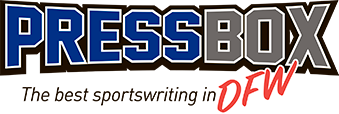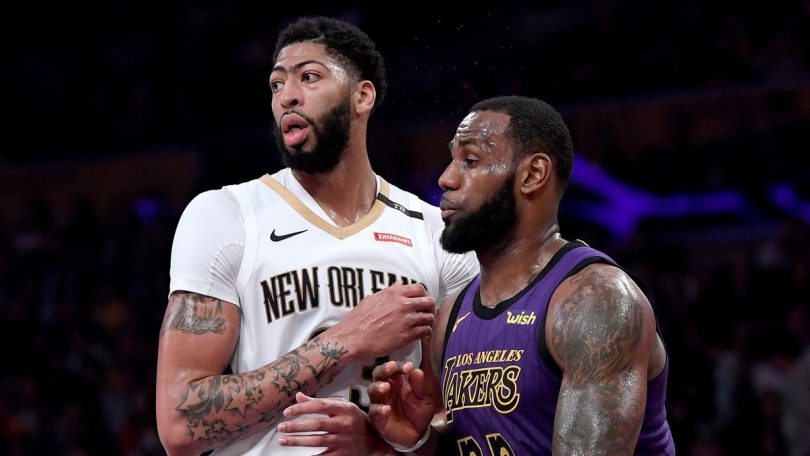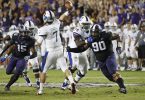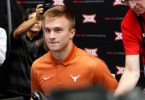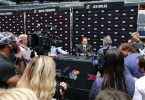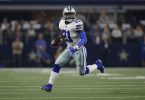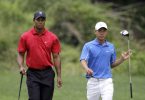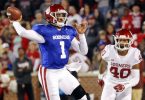Anthony Davis is headed from the Pelicans to the Lakers. But before we begin, an NBA history lesson:
The first headline-thundering trade ever consummated by a New Orleans-based NBA team passed a rueful milestone last month.
Forty-five years ago – May 3, 1974 – the New Orleans Jazz traded the family cow, the house, the crops and the franchise’s foreseeable future to the Atlanta Hawks for Pete Maravich.
The principal owner of the Jazz at the time, a carpetbagger named Sam Battistone, felt that having the LSU legend, Pistol Pete, in a New Orleans uniform was essential to the franchise’s success.
And he was right. Maravich was an immediate, Mardi Gras-sized Louisiana gate attraction.
But the terms of the deal with the Hawks were onerous – two No. 1 draft picks, two No. 2s and two of the Jazz’s top three picks in the expansion draft. Two of the picks ended up being David Thompson and Alex English.
When Pete, who had a flair for flamboyance in those days, was told about the trade terms, he reportedly shrugged and responded, “Is that it?”
The Maravich charisma aside, an expansion team had no prudent reason to be trading away draft picks and dispersal veterans. Yet, it wasn’t the worst formative player transaction that the New Orleans franchise made.
In the summer before the 1976-77 season, the Jazz signed quasi-free agent point guard Gail Goodrich, an 11-year veteran and five-time All-Star, to a three-year, $1.4-million contract.
Big money in those NBA days.
The problem was, the league had not yet embraced the “free” in free agency. Commissioner Larry O’Brien’s head was still spinning from the NBA-ABA merger and the Oscar Robertson lawsuit.
If teams were going to start signing free agents, O’Brien sought to discourage it, at the least. In exchange for the Lakers losing Goodrich, who was 33 at the time, the league ordered the Jazz to send Los Angeles three No. 1 draft picks, plus its 1980 No. 2.
When New Orleans finished the 1978-79 season with the worst record in the NBA, the Lakers received the overall No. 1 pick – which turned out to be a guy named Earvin “Magic” Johnson.
Adding salt to the wound, Jazz fans soon discovered, was that Battistone’s general manager at the time was Barry Mendelson . . . who had previously been Goodrich’s agent.
Thus, though it’s no longer even the same franchise, imagine the elation in the New Orleans NBA camp when terms of the Anthony Davis deal were announced.
Assuming the deal is finalized July 6, as expected, the Pelicans will receive Lonzo Ball, Brandon Ingram, Josh Hart and three No. 1 draft picks, one of which is the fourth pick in Thursday’s NBA Draft.
The team’s new vice-president for operations, David Griffin, two months on the job, is being hailed around the league.
Granted, the Lakers get a superstar bookend to play alongside LeBron James. Whether that, plus their available cap space to entice a star free agent, are enough to push Los Angeles back into the league’s elite remains to be seen. Matt Mosley does a great job elsewhere on this PressBox DFW website of presenting the case against premature anointing of the Lakers.
Regardless of what you may think of the Ball family’s head of household, Lonzo brings star potential to the Pelicans. He still needs to find a jump shot – Jason Kidd eventually did – but he has uncanny court awareness and is a gifted passer and defender.
The NBA draftniks say the top three picks are locked in – Zion Williamson, Ja Morant and R.J. Barrett. My guess is that New Orleans will trade that overall No. 4 pick, further deepening their haul from the Lakers.
How does this affect the Dallas Mavericks?
Maybe it narrows the choices of Charlotte’s Kemba Walker, their reportedly planned free agent target, or maybe not. But if you’re a Mavs fan, you can’t be happy that both the Lakers and Pelicans have elevated themselves into the Western Conference playoff discussion.
The Mavericks’ division, the NBA Southwest, is going to be loaded.
Meanwhile, it’s rather entertaining to see the mighty Lakers franchise desperately prostrate themselves in a bid to regain their playoff luster.
Who won the big trade?
Both teams, probably. But if the LeBron-Brow partnership doesn’t bring an immediate return to the NBA Finals, what exactly was the Lakers’ point?
Or as Pistol Pete might have put it, “Is that it?”
